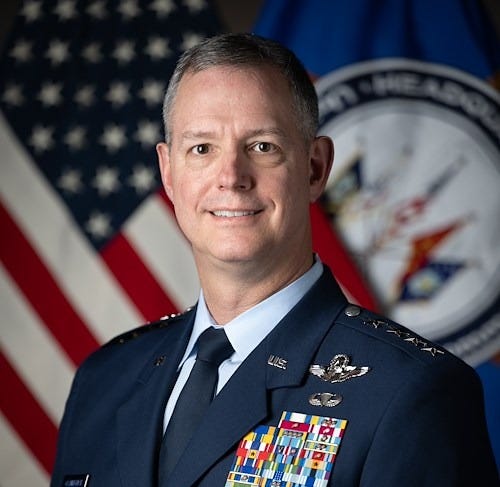NATO's Escalating Response to Russian Air Incursions
As General Alexus G. Grynkewich assumes command of U.S. European Command and NATO's Supreme Allied Commander Europe in July 2025, the Alliance confronts a surge in Russian airspace violations
In recent weeks, a series of Russian airspace violations over NATO territories have heightened concerns about potential escalation in Europe. From drone swarms in Poland to prolonged fighter jet incursions in Estonia, these incidents appear designed to test the Alliance's resolve amid the ongoing Ukraine conflict. Drawing from expert analyses and official statements, this article explores the key aspects of this unfolding crisis.
The Pattern of Incursions: Russian forces have executed multiple violations, including a 12-minute penetration of Estonian airspace by three MiG jets and drone intrusions over Polish, Romanian, and even Scandinavian territories. Experts like Major Roger Djupsjö note this marks a shift from brief provocations to sustained tests of NATO boundaries, potentially signaling Moscow's intent to probe weaknesses.
Russia's Denial Strategy: The Kremlin, through spokesperson Dmitry Peskov, has outright rejected accusations, demanding proof while accusing NATO of fabricating tensions. Reporter Mats Eriksson highlights this as classic disinformation, akin to denials of past atrocities, aimed at sowing doubt and undermining Western unity.
NATO's Defensive Posture: Under Secretary General Mark Rutte, NATO invoked Article 4 consultations, condemning the actions as reckless and reaffirming collective defense. Air policing missions successfully escorted intruders without immediate escalation, but calls for quicker responses, including warning shots, are growing to demonstrate resolve.
Risks and Broader Implications: While firm action could deter further aggression—as seen in Turkey's 2015 downing of a Russian jet—experts warn of miscalculation risks leading to wider conflict. Tied to Russia's Ukraine struggles, these provocations may aim to intimidate support for Kyiv, with ISW reports suggesting Moscow is building reserves amid heavy losses.
Lessons from Ukraine and Adaptations: NATO is enhancing its eastern flank via initiatives like "Eastern Century," incorporating drone countermeasures and lessons from Ukraine's defenses. This includes developing cost-effective interceptors to counter cheap Russian drones sustainably.
Statements from NATO Secretary General Mark Rutte on Solidarity and Resolve: In a recent press conference, Rutte emphasized a "strong statement of solidarity and resolve," condemning Russia's "reckless actions which are escalatory, risk miscalculation and endanger lives." He affirmed NATO's "unshakable" commitment to collective defense and stated that the Alliance stands "ready and willing to continue to defend every inch of allied territory."
Additional Surveillance: Rutte highlighted the launch of the 'Eastern Sentry' initiative to provide additional surveillance and flexibility to NATO's posture along the eastern flank, incorporating counter-drone measures and lessons from Ukraine to address evolving threats sustainably.
Escalation Risks with Not Listening to Diplomacy: Rutte warned that ignoring diplomatic messages to stop the war in Ukraine and cease airspace violations poses significant escalation risks, noting that whether intentional or not, such actions are "dangerous and unacceptable" and that "in the end, it's up to Russia how far they will take this."
Real-Time Decisions: Regarding potential engagements, Rutte noted that decisions to fire upon intruding aircraft are made in real-time based on threat assessments, including intent and risk, with the Supreme Allied Commander holding the overall prerogative, responsibility, and authorities to ensure defense, as demonstrated by successful interceptions without escalation in recent cases such as Estonia.
Polish Drone Violations: In a press release on the Polish drone violations, he stated, "Last night, numerous drones from Russia violated Polish airspace. Our air defences were activated and successfully ensured the defence of Allied territory."
Danish Prime Minister Mette Frederiksen: Addressing the drone sightings that led to temporary closures of Copenhagen's Kastrup and Oslo's Gardermoen airports, Frederiksen described the incident as "the most serious attack" on Denmark's critical infrastructure. She stated that she "cannot rule out" Russian involvement, suggesting the motive was to "disrupt, create unrest... to see how far you can go." Frederiksen emphasized the severity, calling it an "attack" and noting it affected thousands of travelers with flight cancellations and delays.
In conclusion, as NATO balances deterrence with de-escalation, these incidents underscore the fragility of European security. Without credible shows of strength, Russia may continue pushing boundaries, but unified resolve could halt the cycle of provocations and prevent a slide toward broader confrontation.

